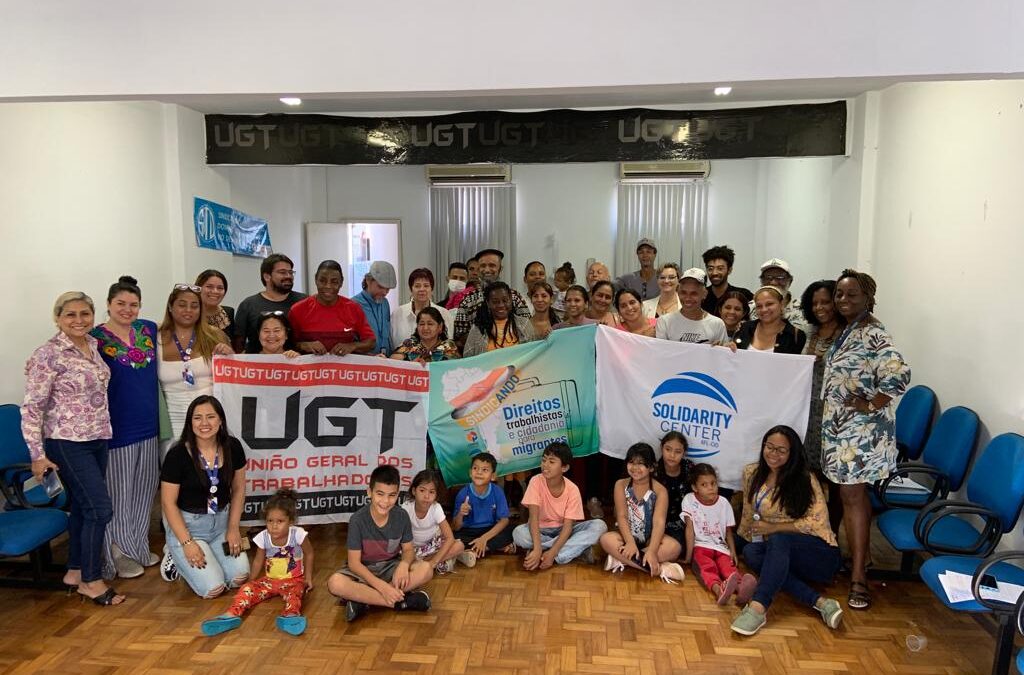
The Brazilian Ministry of Labor and Employment (MTE) rescued 39 workers, including children, in February from modern slavery in the state of Santa Catarina. Over half of them were Venezuelan migrants who had moved to the state via the government’s Operation Welcome program.
A construction company enticed the workers through social media posts in Venezuela, offering jobs building warehouses and promising good pay, safe work conditions, free housing and meals for the workers and their families. When workers arrived, however, they discovered that their “housing” lacked beds or bathrooms, and they were forced to build their own accommodations, which all of the workers and their families had to share. Meanwhile, none of the workers were provided signed labor documents, which meant they were neither formally hired nor had they access to work benefits.
Around the world, it is not uncommon for migrant workers to be promised decent work for good wages only to find upon arrival to a new country that they have been tricked. Not unlike the rescued Venezuelas, they often face wage theft, unsafe working conditions, abuse and exploitation.
Since 2018, the Solidarity Center in Brazil has worked to connect migrant workers to unions and strengthen collective action. The migration program raises awareness on the specific struggles of the migrant workers, shares best practices and tools with local union partners to increase migrant affiliation, and promotes social dialogue for the development of local public policies on migration through a labor movement perspective.
In recognition of its unique perspective and relationships with partner unions, the Solidarity Center was invited to join a new working group created by the Brazilian Ministry of Justice to discuss and propose a new national migration policy for adoption by the new government. The group held its first meeting March 3.
In partnership with the Center for Human Rights and Immigrant Citizenship (CDHIC) through the SindicAndo project, the migration program led to the 2022 creation of the National Network of Unions for the Protection of the Migrant Worker, which already has more than 80 members among local unions, national trade union centers, federations, confederations and global union federations. The program also supported the General Workers’ Union (UGT) Amazonas branch in the creation of the Venezuelan Association in Amazonas (ASOVEAM), which became an UGT affiliate. As of today, ASOVEAM is the head of the Committee for Migrant and Refugee Policies of Manaus, the capital of Amazonas.
The Solidarity Center, with Brazilian trade union federation CUT’s affiliate, the National Confederation of Construction and Wood Industry Workers (CONTICOM/CUT), is working to strengthen union action and confront and combat precarious work through national awareness-raising and affiliation campaigns in the Combating Precarious Work in the Construction and Wood Sectors. The project has mapped worker rights issues in the sector. According to CONTICOM, workers’ main challenges in the sector are: informal hiring, construction companies not providing personal protective equipment and/or bathrooms, the lack of government inspections of work sites, wage theft and harassment, including gender-based harassment.

Workshop on Labor and Social Rights for migrant workers in Manaus (Source: SindicAndo/CDHIC)

CONTICOM’s capacity building workshop on communication (Source: CONTI)

